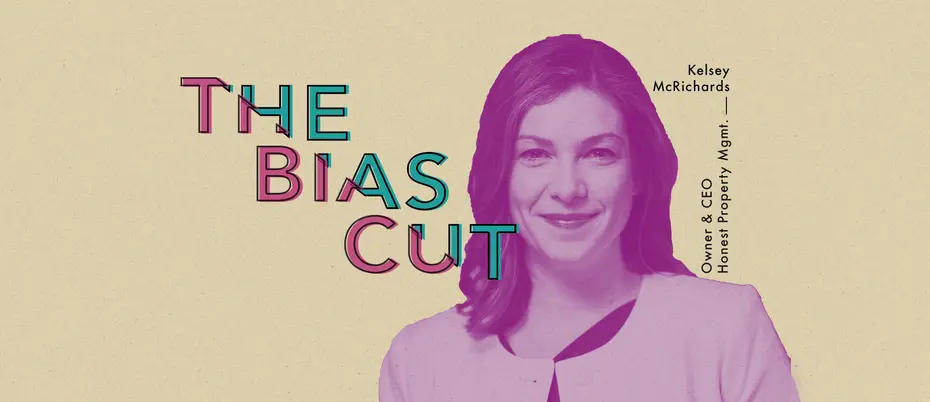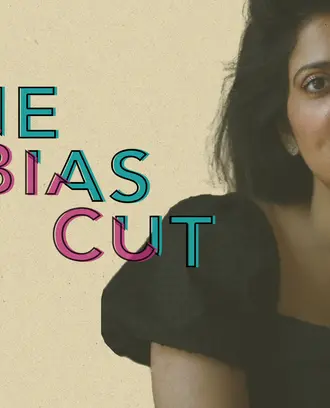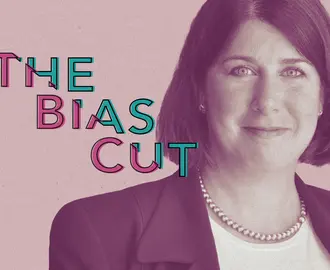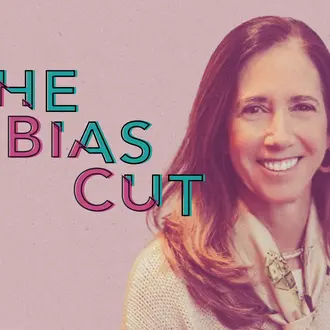The Bias Cut
How a visionary boss helped this CEO succeed
“I was only looking for 1950s sexism when the truth is that gender bias is still alive and well, it's just much more subtle now.”
A 2020 women’s leadership study from LeanIn.org and McKinsey & Co. found that American women held less than 40% of corporate management positions, and women continue to fight underrepresentation when it comes to board positions and CEO roles. They also face gender bias, harassment, and opposition to their management styles.
Here’s how one MIT Sloan alumna has pushed back on those statistics and used what she’s learned along the way to help those behind her.
Kelsey McRichards, MBA ’10, owner and CEO Honest Property Management, former healthcare executive
Who was an ally or mentor for you as you’ve navigated your career? What made that person stand out, and how specifically did they help you get to the next level of your professional development?
I went through a professional women's development course with The Commonwealth Institute. The course armed me with resources, knowledge, and contacts. It also assigned me a mentor. It's been eight years and I can still call up my mentor as well as two other women I met in that program who I adopted as my mentors. I definitely encourage other women to seek out programs like this and make the most of them.
I can be prone to overanalyzing things and second-guessing myself. When I have really tough decisions, I'll ask all three mentors for their advice. Their aligned advice has never once led me astray, and the confidence it gives me to make bold moves is invaluable.
Can you give an example of a time you’ve experienced or witnessed gender bias? How did it affect you professionally? What impact did it have on your job?
At my first job out of business school, there were four particular men who were very tight-knit. They had been with the company a long time and had a lot of power, including with my boss. In my view, these men were underperformers. I didn't have enough savvy at the time to truly hide how I felt, and I wasn’t appeasing them.
When I went up for a promotion, it was denied because I “wasn't getting along with others," as if I wasn't getting along with anyone. I was devastated and felt like a failure for almost a full year. Then “Lean In” was published, and I swore Sheryl Sandberg must have been spying on me. My scenario and the words my boss used to describe my "failure" were written out almost verbatim in the book.
Later I learned the group of men had complained to my boss, which affected the promotion decision. I finally saw the gender bias for what it was. I also knew that changes were not coming to this company any time soon — so I left.
In my new company, I was quickly recognized as a high performer. They moved me through three departments and two promotions in four years, explicitly putting me in charge of underperforming units to help turn them around. The results I had to show from those efforts then gave me the credentials to get hired and promoted by another company. In total, I went from manager to vice president in five years.
Certain industries are as male-dominated as ever. Where do you see progress in your own professional experience and how can we scale that throughout your industry?
I had a male VP who hired many women in their 30s who then started families. One of my promotions happened while I was on maternity leave. I came back to a new job as a new mom, and no one blinked an eye. The sense of empowerment among the women on the team, both those with and without children, was incredible.
More companies need to have that kind of attitude, then make that attitude visible and normalize the flexibility women need to manage both their personal and professional lives. I think some companies might fear that lots of flexibility means performance goes down. In this case, expectations were high, but talented team members had the flexibility they needed to meet them. This in turn made the team stronger and allowed us to continue setting the bar higher for what our organization could achieve.
How do you support women coming up behind you?
I love to pay it forward through mentorship since that was so monumental for me. I also like to tell other leaders when I notice good work in the company. Calling out good work helps people get noticed by their managers or other leaders when too often good work can get ignored while we're focused on the latest company fire. Sometimes that can be the difference of whether someone is considered for a new opportunity, especially if that person is female, BIPOC, and/or LGBTQI+ and especially if you are viewed as a trusted source.
What is the most difficult lesson you’ve learned in your professional life? In what unexpected ways did you grow from it?
Prior to being told I wasn't likeable, I had made it to age 30 with words coming out of my mouth like "Does sexism still exist? I've never experienced it." I was only looking for 1950s sexism, when the truth is that gender bias is still alive and well, it's just much more subtle now.
I still remember the sadness I felt in that year when I thought I had absolutely failed professionally, but I'm also grateful for the huge wake-up call it gave me. In addition, I am now able to spot subtle but real gender bias danger zones and navigate around them while still getting my work done.
Read next: This founder and CEO works to get women closer to capital




